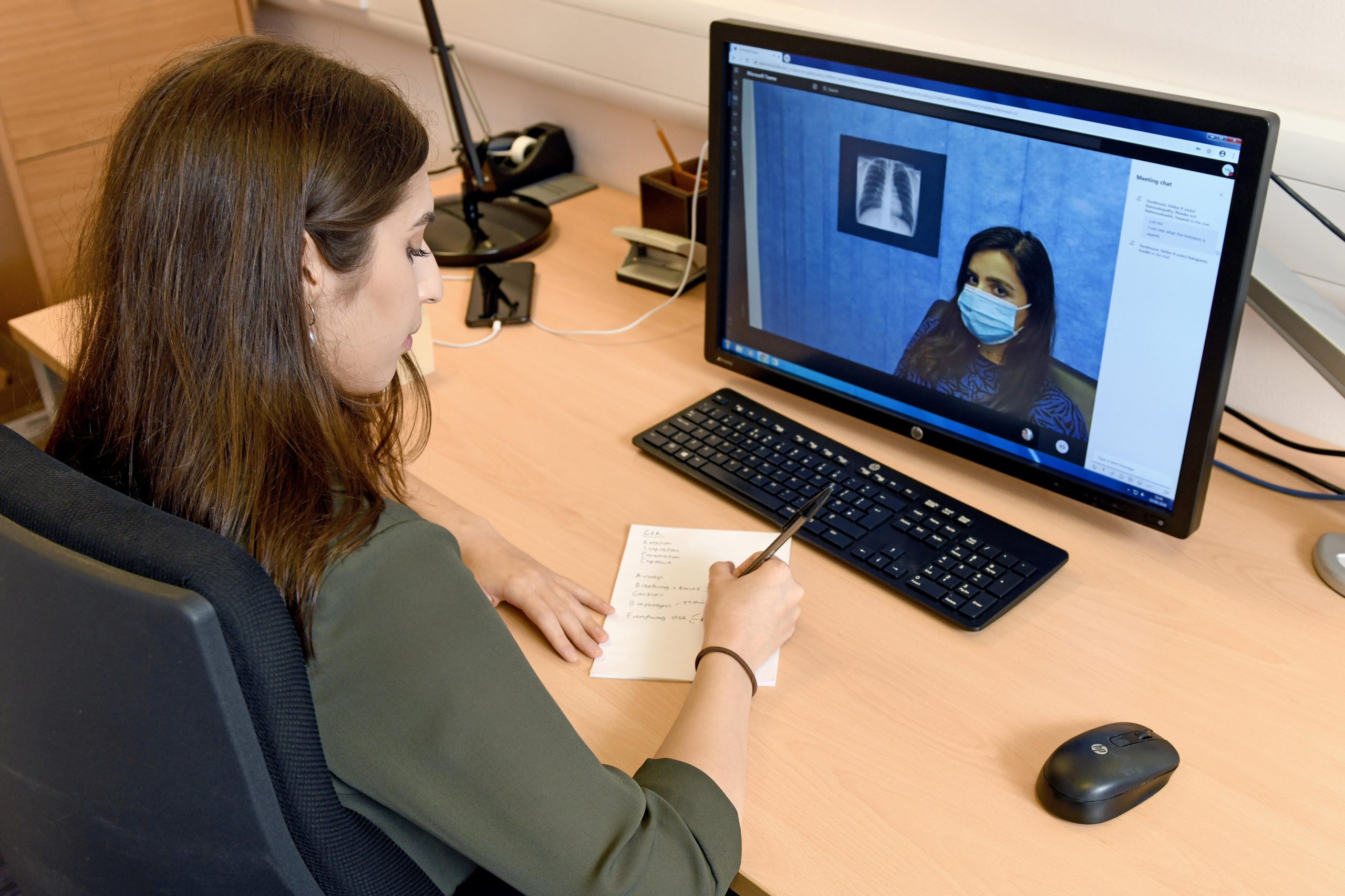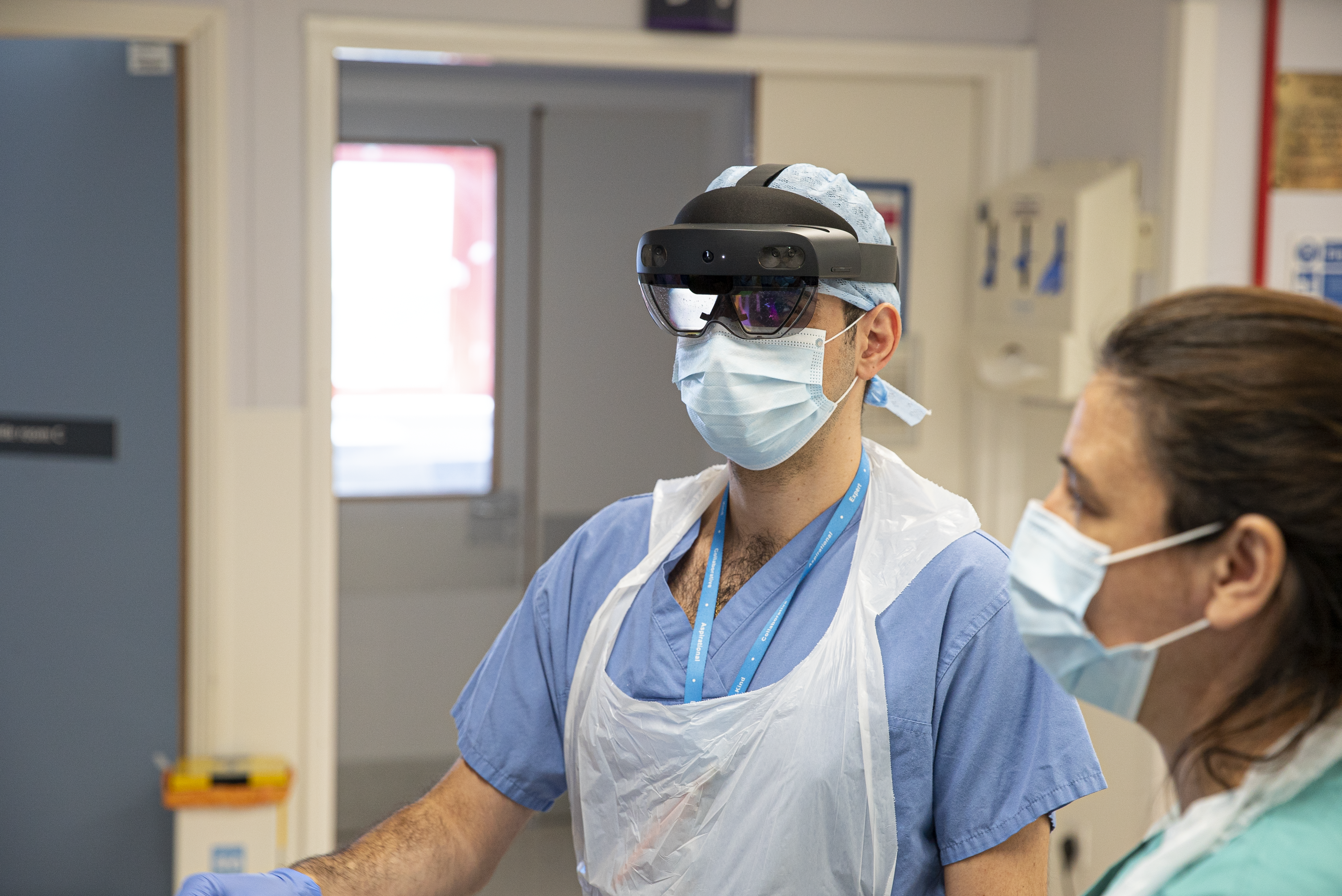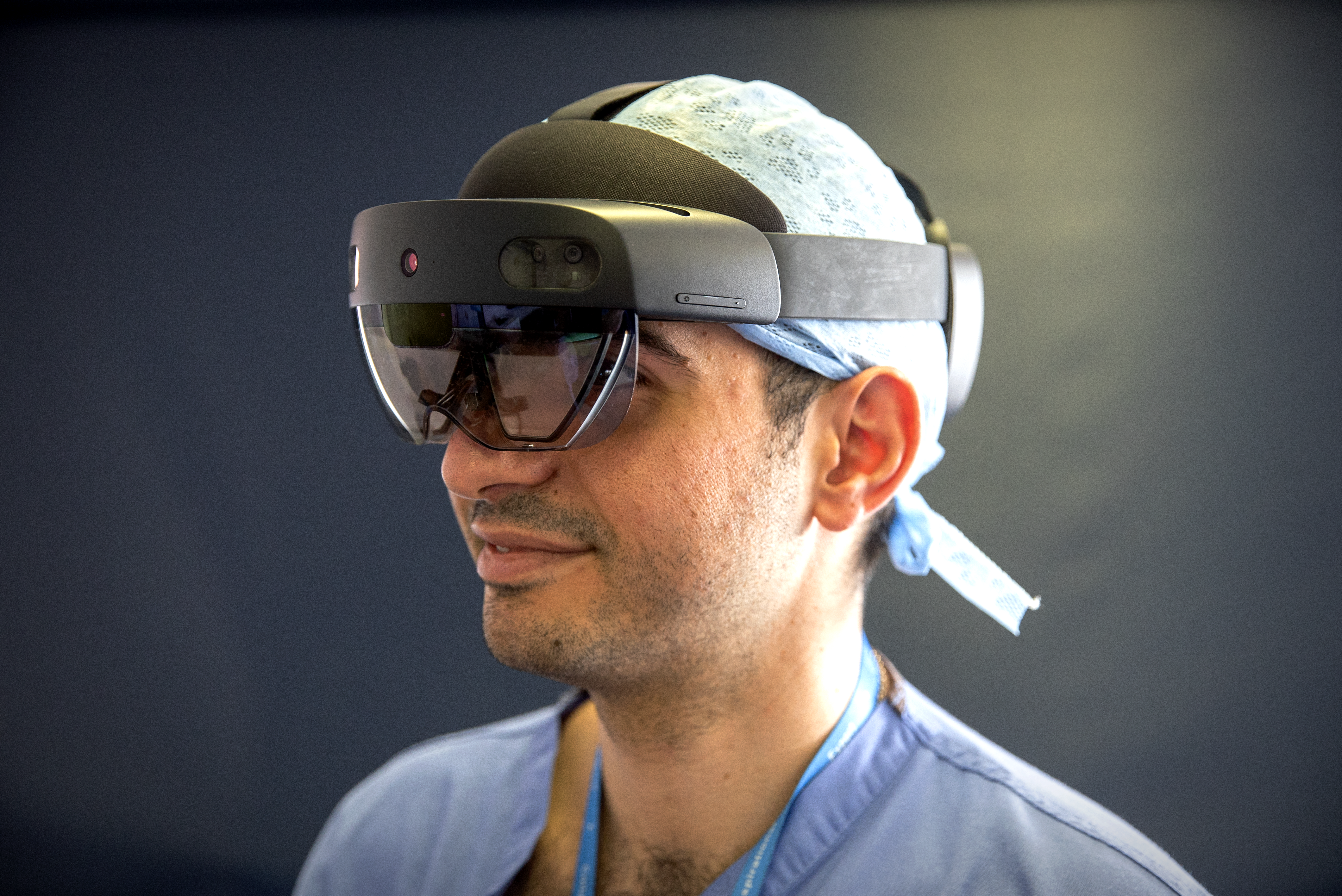Imperial College London is using Microsoft HoloLens to help medical students get vital experience of real patients in hospitals despite COVID-19 restrictions.
Imperial’s Faculty of Medicine is a world leader in medical research and training of healthcare professionals, but hundreds of its students were unable to receive face-to-face training in hospitals for months due to measures introduced to combat the spread of Coronavirus.
Professor Amir Sam, Head of Imperial College School of Medicine, said hands-on, real-world experience was critical for students in order for them to become competent and skilled doctors who can treat patients safely and effectively.
Clinicians and educators at Imperial have been using Microsoft’s HoloLens headset in outpatient clinics and ward rounds, which enables them to share a live feed of what they are seeing with students watching on their devices at home. Patients give their consent so X-rays and charts of patients can also be displayed for the students, who can ask the HoloLens-wearing doctors questions about what they are seeing.
Sam said: “Medical students learn by observing and assisting a professional. That was obviously impossible throughout the initial COVID peak but we remain committed to ensuring Imperial produces some of the best doctors in the world.
“Our initial HoloLens pilots were amazing and the feedback has been phenomenal. Following a successful mixed-reality teaching ward round, we have recently introduced surgical teaching using this technology for our final-year medical students, for whom the reliable continuation of clinical training is currently particularly vital. It will enable us to provide consistent, immersive teaching for our students remotely. Via the livestream on their devices, they can see a real patient, interact with the clinician wearing the headset as well as viewing medication lists, observation charts, and radiological images.

“In some ways, better teaching can be provided this way. You can’t have 100 students around a patient’s bed, observing a doctor and asking questions. With HoloLens, we can do that.”
Medical training relies on experiential learning and adequate patient exposure is key. With modern changes in how healthcare services are delivered, not every hospital is equipped to provide all specialities. For example, seeing a particular type of surgery may only be available at a limited number of hospitals which cannot accommodate huge numbers of students.
With a HoloLens recording, every student can potentially gain a real-world experience of both common and uncommon medical conditions, ensuring improved patient outcomes in future.
“If you are a patient, you want to have confidence that your doctor has seen what they need to have seen,” Sam added. “Traditionally, we’ve never been able to guarantee experience of medical conditions and presentations during training. Now, we can plan it. By using HoloLens, we can take students onto the vascular surgery ward or into the endocrine clinic and give them that experience. You can’t really learn it from books, you need to experience it. Going forward, and now that students have returned to training in hospitals, we are looking to continue to use HoloLens to cover what students might otherwise miss out on.”
Yasamin Mahmudzade and Vasiliki Kalogianni are fifth-year medical students studying at Imperial College School of Medicine.
“I remember one case we had on a live ward round,” said Mahmudzade, who wants to specialise in orthopaedics. “There was a lady who had gone into hospital with a fractured hip. The consultant who saw her was wearing a HoloLens so we could see through his eyes. We could ask him questions, and he could pass those on to the patient. When the X-ray came up on the screen, we could point out key features. It was very well done.”

Kalogianni, who wants to work in intensive care when she qualifies as a doctor, said HoloLens has made learning from real patients more accessible.
“As a student, you have to think about where you’re sitting or standing on a ward round so that you’re not interrupting the examination or the consultation, because these are real patients with real illnesses whose priority is to get better,” she said. “That means that you might not be able to see what the clinician is doing very clearly.
“I think HoloLens would work well by supplementing traditional teaching to allow us to experience a greater variety of patients. It worked well for me and I would like to see more of it.”
Microsoft HoloLens is being used in several departments at Imperial College Healthcare NHS Trust. Doctors on COVID-19 treatment wards used the headset to limit the number of healthcare professionals who need to be near Coronavirus patients. A live-feed is broadcast to the rest of the healthcare team who are safely located in a nearby room.
The Trust, which includes Charing Cross Hospital, Hammersmith Hospital and St Mary’s Hospital, says using HoloLens reduced the time spent in high-risk COVID-19 environments by 83%.
Alex Montgomery, Director of Azure Product Marketing at Microsoft, said: “HoloLens is allowing medical staff to collaborate and learn from anywhere in the world, at any time. That’s critical for the students who will one day be on the frontline of the NHS, treating patients.
“While Microsoft has supplied the HoloLens devices to Imperial, it’s the doctors, nurses, clinicians and educators who have embraced the technology and used it in ways that best suit how they work. It’s been fantastic to see how HoloLens is helping NHS workers.”
READ MORE:
How HoloLens and Dynamics 365 Remote Assist helps the NHS provide patient care
PODCAST: How Imperial College NHS Trust used HoloLens during Covid







